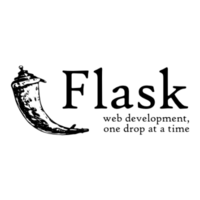We decided to migrate our web framework from Django to Flask for a number of reasons. Firstly, Flask is a light-weight framework which makes it easier to use for simpler cases and to build a quick prototype. It gives developers full freedom for what they want their application to look like. With a coherent and neat API, Flask allows easy and flexible configurations along with integrated unit testing support which makes it a great tool. By using Flask, a simple application can be later changed to add more functionality and make it complex. It provides flexibility to expand the application quickly which is harder to do with Django where requirements change dynamically. Moreover, Flask is a minimal yet powerful platform with easy database integration which gives us the opportunity to easily develop and maintain applications. On the other hand, Django has a high learning curve and is a higher entry point for simple solutions. In addition to that, Django requires roughly more than 2 times more lines of code than Flask for the same functionality. Django is suited for bigger projects that need a lot of functionality. For simpler projects like our application, the features might be an overkill. Putting all these factors into consideration, we decided it was best to switch to Flask from Django
4 upvotes·8.6K views


